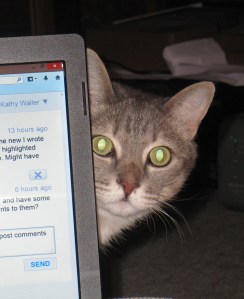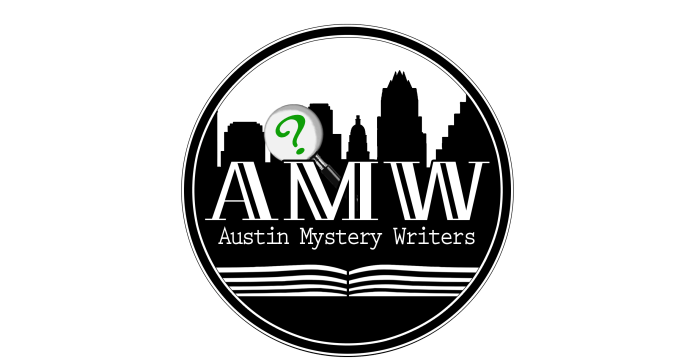“And the wild things roared their terrible roars and gnashed their terrible teeth and rolled their terrible eyes and showed their terrible claws.” ~ Maurice Sendak, Where the Wild Things Are
There was wailing and gnashing of teeth today at Writers Who Write.
Now, it’s too early for a digression, but I shall digress. Writing that first sentence, I wondered whether anything besides teeth can be gnashed. So, although everyone says not to research while you’re writing, I googled gnash and found this:
- To grind or strike (the teeth, for example) together
- To bite (something) by grinding the teeth
I would have searched further for confirmation but was distracted by these words, in large blue font, about two inches above the definitions:
Wisdom Teeth Removal
Which reminded me of a certain unhappy experience in the office of an oral surgeon in Seguin in 1976, and the effect it still has on my life today. I won’t go into detail, but I will say that if a doctor ever slices one of your arteries and then looks down at you and says, “Do you have high blood pressure?” in an accusing tone, as if it’s your fault that protracted hemorrhaging is messing up his schedule (and you’re only twenty-five and skinny to boot but, under present conditions, who wouldn’t have high blood pressure?) and you want to say, “Don’t you have a cuff in this office?” but can’t–in short, if this should happen to you, do not, under any circumstances, politely refrain from coughing. And afterward, when your mother and your cousin are dragging you from the operating room, do not offer to pay for having the doctor’s nice, starched, formerly white coat laundered.
Well, anyway. To clear my mind of the old insult, I scrolled down the page and found two references: a line from Dickens’ A Tale of Two Cities:
They danced to the popular Revolution song, keeping a ferocious time that was like a gnashing of teeth in unison.
And one from Homer’s Collection of Hesiod, Homer and Homerica:
Two serpents hung down at their girdles with heads curved forward: their tongues were flickering, and their teeth gnashing with fury, and their eyes glaring fiercely.
And the combination of the two reminded me of a description of Madame Defarge:
Instantly Madame Defarge’s knife was in her girdle, the drum was beating in the streets, as if it and a drummer had flown together by magic; and the Vengeance, uttering terrific shrieks, and flinging her arms about her head like all the forty Furies at once, was tearing from house to house, rousing the women.
That’s my favorite line from ATOTC, not because of its poetry, but because when I read it aloud to my freshman English students, they became still and silent (for the first time that year), and their eyes widened, and their lips formed grim lines, and I knew my politest students were suppressing laughter, doing their best not to be wild things just because they’d heard that a character had a knife in her girdle. The word was funny enough without the knife. Goodness knows what they’d have looked like if Madame had had two serpents in her girdle.
That was the spring of 1984, when teenagers remembered girdle commercials on television.
I took pity and explained the difference between Madame Defarge’s girdle and Jane Russell’s girdle. They began to breathe again. I tucked the moment away to recall at times when I needed a laugh.
When I got into the girdle part of this piece, I realized I needed to confirm when various commercials were aired. I didn’t want to say the Playtex 18 Hour Girdle was advertised in 1980 when it was really the I Can’t Believe It’s a Girdle. During my research, I learned quite a lot about foundation garments. The most arresting fact was that “[t]he Playtex brand completely disappeared from Australia in 1984.” I didn’t take time to find out why, but I have this image of the entire inventory vanishing while picnicking at Hanging Rock.
I also learned that Playtex was once owned by Sara Lee. That must have been the most mutually beneficial arrangement in the history of American retail. First sell them pastries, then sell them girdles. A win-win situation, on the corporate side at least.
In the midst of all this, an event of monumental importance occurred. With an episode of Lou Grant playing in the background, I heard a character portrayed by Laraine Day tell Billie how she had hidden her identity when she moved from Hollywood to housewifery: “I wore specs and took off my girdle.”
Joseph Campbell said, “Follow your bliss and the universe will open doors where there were only walls.”
There I was, blissfully meandering from wailing to teeth to Dickens to Homer to girdles, when up popped another girdle. As if it were planned. Julia Cameron is right. There’s something to be said for relaxing and opening oneself to the universe.
But back to the wailing and gnashing. At Writers Who Write, a twice-weekly work group, I was absorbed in tweaking a short story when the manuscript disappeared and a new screen appeared bearing the message from my Chromebook’s Googledocs: Whoops! That shouldn’t have happened.
No, indeed it should not.
I filled out the requisite form, explaining what had happened: I pressed Enter, or maybe the ” key, or maybe both Enter and the ” key at the same time, and the next thing I saw was Whoops!
I didn’t mention that I pressed the Whatever key with a certain amount of flair, as if I were following my piano teacher’s instruction to Let the piano breathe!
When I was twelve, I was too much concerned with correctness–and preventing stress to my ears–to let my fingers stray too far from the keys, but on the laptop and the Chromebook, I am a veritable Liberace. Googledocs, however, likes correctness.
When I checked about an hour ago, the manuscript was still lost in cyberspace. But I’m easy. If the universe can provide a girdle, coming up with a lost manuscript should be no stretch at all.
###
Image of Jane Russell at the 16th Annual Faith and Values Awards Gala By Credit to lukeford.net (permission statement at en:User:Tabercil/Luke Ford permission)
CC BY-SA 2.5
 I’m running a little behind in my attempt to add 4,000 words to my WIP by March 26.
I’m running a little behind in my attempt to add 4,000 words to my WIP by March 26.






































